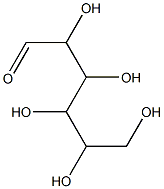T9198630
Isobutyronitrile , >98.0%(GC) , 78-82-0
Synonym(s):
2-Methylpropanenitrile;2-Methylpropionitrile;Isopropyl cyanide
CAS NO.:78-82-0
Empirical Formula: C4H7N
Molecular Weight: 69.11
MDL number: MFCD00001873
EINECS: 201-147-5
Update time: 2022-07-08
PRODUCT Properties
| Melting point: | -72 °C (lit.) |
| Boiling point: | 107-108 °C (lit.) |
| Density | 0.770 g/mL at 20 °C (lit.) |
| vapor density | 2.38 (vs air) |
| vapor pressure | 100 mm Hg ( 54.4 °C) |
| refractive index | n |
| Flash point: | 39 °F |
| storage temp. | Flammables area |
| solubility | slightly soluble in water and acetone, very soluble in alcohol and
ether |
| form | Liquid |
| color | Clear colorless to light yellow |
| PH | 6 ( in H2O) |
| explosive limit | 1.6-12.7% (v/v) |
| Water Solubility | 35 g/L (20 ºC) |
| Merck | 14,5156 |
| BRN | 1340512 |
| Dielectric constant | 23.9(Ambient) |
| Stability: | Stable. Flammable. May form explosive mixtures with air. Incompatible with strong oxidizing agents. |
| CAS DataBase Reference | 78-82-0(CAS DataBase Reference) |
| NIST Chemistry Reference | Propanenitrile, 2-methyl-(78-82-0) |
| EPA Substance Registry System | Isobutyronitrile (78-82-0) |
Description and Uses
Isobutyronitrile can be derived from isobutyraldehyde. It is used in organic synthesis, as a catalyst in the polymerization of ethylene and in the petroleum industry as a gasoline additive. Isobutyronitrile is also used to synthesize the intermediate 2-isopropyl-4-methyl-6-hydroxypyrimidine of the organophosphorus insecticide diazinon.
Safety
| Symbol(GHS) |   GHS02,GHS06 |
| Signal word | Danger |
| Hazard statements | H225-H300+H310+H330 |
| Precautionary statements | P210-P233-P240-P280-P303+P361+P353-P304+P340+P310 |
| Hazard Codes | F,T |
| Risk Statements | 11-23/24/25-36/37/38 |
| Safety Statements | 9-16-24/25-26-36/37/39-45-23 |
| OEB | A |
| OEL | TWA: 8 ppm (22 mg/m3) |
| RIDADR | UN 2284 3/PG 2 |
| WGK Germany | 2 |
| RTECS | TZ4900000 |
| Autoignition Temperature | 899°F |
| Hazard Note | Highly Flammable/Toxic |
| TSCA | Yes |
| HazardClass | 3 |
| PackingGroup | II |
| HS Code | 29269095 |
| Hazardous Substances Data | 78-82-0(Hazardous Substances Data) |
| Toxicity | LD50 (mg/kg): 25 i.p. in mice; 200 orally in rats (Zeller); LD50 orally in male mice: 0.3652 mmol/kg (Tanii) |





